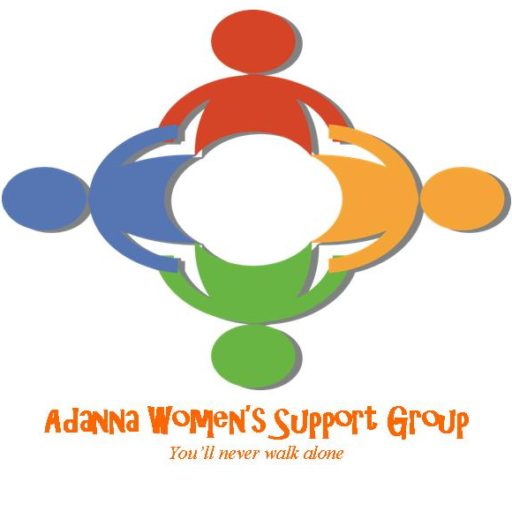Blog Post- International Women’s Day Women’s Talk on Health inequalities in BAME women
13 March 2021.
For International Women’s Day a discussion was held about the inequalities in health for BAME women. The COVID pandemic it has shone a light on inequalities of health felt by ethnic minority communities, with not only a higher number of COVID cases but with high numbers of mortality rate amongst ethnic minority groups, and our question is why? Why are these health inequities present? And what is being done to remove the inequalities? During the discussion three women from Redbridge Public Health and the council joined us. and made presentations. From this we were able to see what exactly Redbridge council aims to do about reducing these inequalities. During our research we found different factors that influenced quality of health for the BAME group people these factors were:
- Employment
- Being a refugee or asylum seeker
- Lack of social support
- Racism
- Blaming cultural beliefs
During the discussion there were a few points that were made about the inequalities felt by ethnic minority women specifically.
Adultification of black and Asian women- here BAME women are more often told ‘to get on with it’ or expected to bear excessive pain compared to their white counterparts. In particular young BAME women are treated as if they are much older than their actual age whereas their white female counterparts are treated much more sympathetically and child like being offered a range of different treatments and care options.
Health Concerns are not taken seriously – here BAME women’s health concerns are more likely to be dismissed by the GP or health professional than their white counterparts. We heard of a woman who told a hospital about her allergies and they ignored it and administered the medication anyway and this left her with life threatening illness and permanent disability.
Being treated as unintelligent – here the BAME women felt the health professionals sometimes looked down on them or spoke to them as though they were stupid. We heard from a female engineer from India who said due to her accent
and limited English her GP belittled her by shouting at her during a consultation. She did not respond due to her cultural upbringing to be respectful but felt very uncomfortable about opening up to that person again.
The public health officers from Redbridge council mentioned a few different projects they are working on to close the health gap for BAME community group.
- Every day in policy- every life matters and every opinion matters.
- Redbridge council is working with rough sleepers, to ensure they access health services
- UNICEF Charter-Doing child friendly services.
- Reaching out to young mothers-How schools can support young mothers.
- Good schools mean social inclusion for young mothers.
- Decommissioning certain programmes that are not effectively helping close the health inequality gap and then commissioning other programmes that are much more likely to be effective in closing the gap.
- Maternity programme- The aim of this maternity programme is to allow better birth, better pre-natal care, better maternity, and better post-natal care.
- Obesity programme- this programme aims to look at different ways to promote healthy living/eating for BAME communities.
Although all these different programmes are designed to help close the gap for ethnic minority groups. It is difficult to do so when the BAME community is so varied, it does not involve just one community group it is a large, varied community, where each individual within the BAME community has different health concerns, therefore having the term ‘BAME community’ to describe such a large number of people it makes it impossible to be able to close the health inequalities gap. At the end of the discussion, we conducted a survey to further understand the BAME communities experience of health services and the experiences they are facing.

Table 1 represents the opinions on mental health and which ethnic group is more likely to suffer from mental health problems we can see the Black ethnic group has the highest chosen ethnic group followed by the Asian ethnic group. Looking at the results form table 1 above it correlates with the actual results. According to the Adult Psychiatric Morbidity Survey found that black men were more likely than their white counterparts to experience a psychotic disorder in the last year. This tells us that ethnic minority communities are aware of the health determinants within their own community, and are aware of the fact that it could have detrimental effect on their community, yet very little is being done about it.

Table 2 represents the opinions on which BAME communities is likely to suffer form physical health. We can see that the Black and Asian ethnic groups were the most commonly chosen groups of individuals who were seen as more likely to suffer from ill physical health. Similarly, national statistics correlate with this finding that BAME groups are likely to suffer from physical ill health more than their white counterparts. During pregnancy black women are 5 times more likely to die during childbirth compared to their white counterparts. This is a statistic that is shocking and upsetting to have to hear being able to discuss these issues feels empowering to share with other women, it allows voices to be heard and awareness to be raised. We also asked the respondents of their experience of using health services the
statistical representation bellow shows the answers.
We also asked the respondents of their experience of using health services the statistical representation bellow shows the answers.

Table 3 shows that 54.5% (over half) felt they had been treated differently based on their gender or race.
We went further to ask our respondents to share their experiences if they had any bellow are some of the responses.
“Yes, a particular GP refused to see us because he didn’t want to support us in our housing matter which was having an effect on our health”.
“My fears not ;listened to.. “I was pressured into taking High dosage medication”.
“My GP had refused to give me blood test despite repeated requests. Until I really had to finally assert myself and they could see I was not going to leave without a positive answer!”
“I had breathing issues and snored heavily so I visited my GP on a number of occasions but no diagnosis and medication given for treatment. I was told this is this is normal by the GP.”
‘I don’t feel my GP cares about my issues but just dismisses my concerns’
Above are some of the opinions we can see that from the 11 respondents 6 have said that they felt they had a bad experience with health professionals like their GPs.
Table 4 below shows the opinions of how the respondents feel about the healthcare professionals and if they believe there is enough understanding of the conditions/situations of Black or Asian health concerns and conditions.

To better allow ethnic minorities to benefit from health services it is important to have open communication on how to be inclusive and allow ethnic minorities to be able to come forward with their experience to allow a better health care service for future generations.
CONCLUSION
Having this conversation is important as it allows inclusivity, a feeling of believing and allowing everyone to be heard, encouraging each other, we were able to express our thoughts and feelings about the health inequalities and the lack of communication around this topic. We were able to let our voice be heard by the members of Redbridge Public health and the council and we hope it makes a difference.
OUR RECOMMENDATIONS
We concluded and recommended to the Public health professionals present that Redbridge consider training health professionals regularly on people skills particularly around how to work with people from diverse cultures. Also more input from such ethnic group in shaping the health services is essential if they are to become more equal

